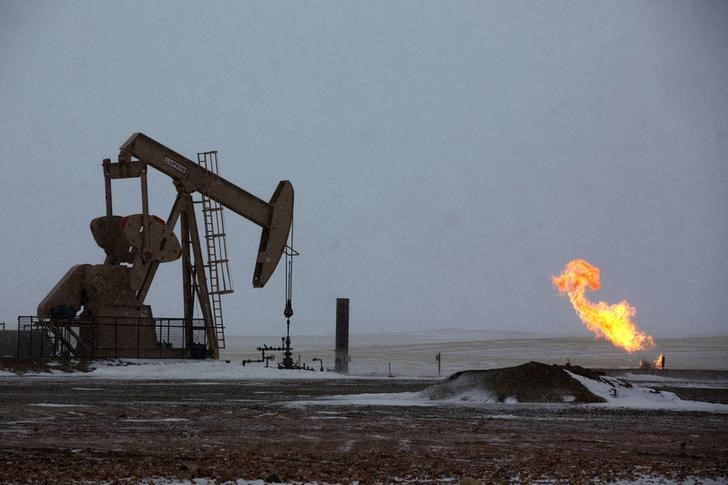By Nia Williams
CALGARY, Alberta, May 31 (Reuters) - Kinder Morgan (NYSE:KMI) Inc's KMI.N Trans Mountain pipeline expansion is the centrepiece of Canada's plan to ship heavy crude oil to energy-hungry Asia but intense provincial opposition could cause delays and leave Canadian producers lagging U.S. and Middle East firms in the race for market share.
The Trans Mountain expansion was meant to triple capacity on the pipeline that flows 300,000 barrel per day of landlocked crude from Alberta's oil sands to the Pacific coast, but British Columbia's new minority government vowed on Tuesday to stymie the C$7.4 billion ($5.5 billion) project despite the federal government approving it last November. opposition from environmentalists and aboriginal groups, this is the latest blow to the Canadian oil patch, where international oil majors have sold off C$22.5 billion in assets this year because of high costs and tight export pipeline capacity. Trans Mountain looks set to join the ranks of other stalled export pipelines including TransCanada Corp's TRP.TO Keystone XL and Energy East projects to the United States and eastern Canada, adding to frustration in the energy industry.
"It is by far the most important pipeline given we need to be able to unlock our barrels and move them to key demand growth regions like China and India," said RBC Capital Markets analyst Michael Tran. "While other pipelines south and east would be nice to have, it's absolutely imperative to go west."
Oil sands producer Cenovus Energy Inc CVE.TO plans to pursue customers in Asia and higher-priced U.S. markets like California once the Trans Mountain expansion nears completion, but has so far held off doing so because of limited market access, spokesman Reg Curren told Reuters in an email.
"Due to current pipeline capacity restrictions to coastal ports, the majority of Canadian oil exports to the U.S. go to the Midwest where historically they have been sold at a discount to world prices," Curren added.
The United States is essentially Canada's only customer for oil, taking 3.5 million of its 3.55 million bpd of crude exports, according to the most recent Statistics Canada data. refining market is the fastest growing in the world, adding 450,000 bpd of crude capacity in 2017 on top of total installed capacity of nearly 29 million bpd. of those refineries are configured to process medium grade crudes, such as those from the Middle East, but a boom in U.S. shale production means more light oil could also end up in Asia for blending, said John Auers, from energy consultancy Turner, Mason & Company.
"Their incremental barrel has go to overseas," Auers said. "The growth in U.S. crude exports has been pretty steep and some of that will end up in Asia."
Along with U.S. shale producers like EOG Resources Inc (NYSE:EOG) EOG.N and Whiting Petroleum Corp WLL.N , the Canadian crude-by-rail industry could benefit from a looming crunch in export pipeline capacity as crude production grows.
Crude-by-rail exports in March hit 155,655 bpd, their highest since October 2015, according to National Energy Board data.
Uncertainty over Trans Mountain could also prompt more producers to commit to shipping on the Keystone XL pipeline. TransCanada Chief Executive Russ Girling recently said those negotiations had been complicated by lower oil prices and alternative export routes. energy industry players, however, were sceptical that any pipeline could progress in Canada currently, and blamed Prime Minister Justin Trudeau's emphasis on new energy projects needing approval from communities or "social license."
"Why activate Keystone XL or Energy East when you cannot even figure out the elephant in the room, which is social license and no infrastructure growth?" said Rafi Tahmazian, a portfolio manager at Canoe Financial.
That was echoed by the leader of Canada's federal New Democratic Party Tom Mulcair, who told reporters in Ottawa that Canada does not have a credible thorough environmental assessment process.
"The problem of course now is the fact that in the absence of that process, none of these projects can go ahead," he said.
